Our Programs

Programs & Strategies
In its strategies and programs, Ardha Jabesa foundation focuses on environment and biodiversity conservation
and restoration, Girl Child education and care, empowerment of Youth and Women initiatives, sustainable livelihood and
economic diversification, Peace building, governance and social economic integration, Rights based advocacy and community
land rights safeguarding, Climate Change Adaptation & resilience, as being multi-dimensional approach.In this regard,
the following programmatic and institutional areas have beenprioritized to be focused on in the
strategic plan period 2022-2026.
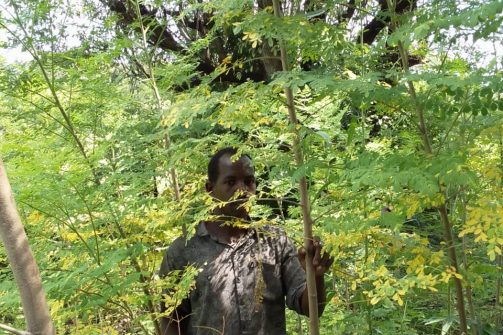
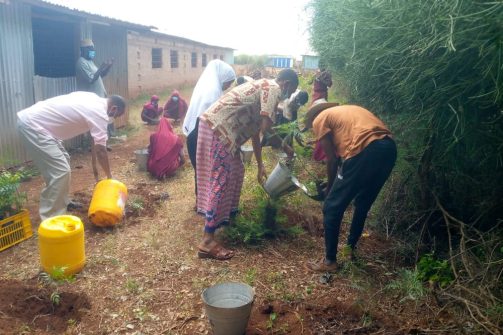
Environment and biodiversity Conservation and Restoration
Ardha Jabesa is dedicated to the conservation of Northern Kenya's diverse ecosystems, including arid lands, savannas and critical water sources. By collaborating with local communities, government agencies and other stakeholders, the organization establishes and enforces conservation policies aimed at preserving these vital environments.
Ardha Jabesa emphasizes the importance of environmental health for the well-being of local communities, raising awareness through education programs, workshops and training that empower individuals with the knowledge and skills needed for sustainable environmental conservation.
Additionally, Ardha Jabesa implements climate change adaptation
strategies to help communities build resilience to the changing climate,
ensuring long-term sustainability.
In its advocacy efforts, Ardha Jabesa promotes policies that address
climate-related challenges and support sustainable practices, engaging in public awareness campaigns to garner widespread support for environmental protection. The organization fosters partnerships with government agencies, NGOs, research institutions and local communities, leveraging collective expertise and resources for effective conservation initiatives.
Through these collaborative efforts, Ardha Jabesa foundation works to protect endangered species and their habitats, restore degraded ecosystems to their natural state and promote legislation that supports conservation and sustainable development at local, regional and national levels. Ardha Jabesa’s holistic approach ensures the preservation of Northern Kenya’s rich biodiversity and fosters a sustainable future for the region.
Sustainable livelihood and economic diversification
Sustainable livelihood and economic diversification in Northern Kenya focus on enhancing the resilience and prosperity of local communities through innovative and sustainable economic practices. Traditional livelihoods such as pastoralism face significant challenges due to climate change, environmental degradation and market access barriers. To address these, strategies including the introduction of drought-resistant crops, sustainable livestock management, efficient water resource techniques, and the promotion of alternative income sources like eco-tourism, renewable energy projects, support for small and medium enterprises (SMEs), development of fisheries and aquaculture and tourism initiatives are also crucial components of economic diversification efforts.
Education and skills development play a vital role, with vocational training, entrepreneurship programs and financial literacy education empowering
community members to adapt to new economic activities. Community engagement is essential, ensuring that local leaders, women and youth are actively involved in planning and implementation. Policy advocacy and partnerships with government bodies, NGOs and the private sector help create a supportive environment for these initiatives. Integrating these approaches, Northern Kenya aims to achieve a diversified and resilient economy, improving the livelihoods of its communities and fostering sustainable development.
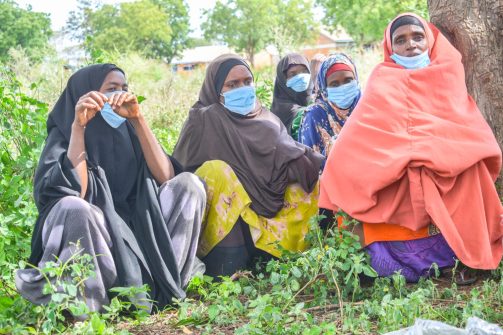
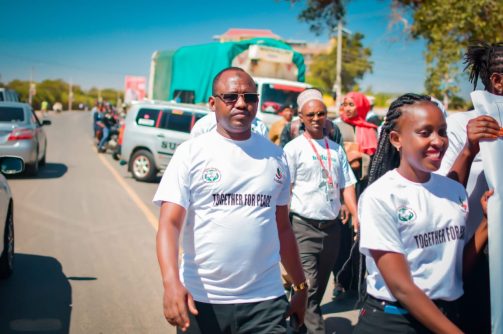
Peace building, governance and social economic integration
Peace building, governance and socio-economic integration are crucial for fostering stability and development in the region. The area has faced historical challenges, including ethnic conflicts, resource-based disputes and marginalization, which hinder sustainable development. Effective peace building efforts focus on conflict resolution and reconciliation, involving local communities, traditional leaders and government bodies to create inclusive dialogue and address root causes of conflict.
Strengthening governance through capacity building for local authorities,
promoting transparency and ensuring community participation in decision-making processes are vital for creating a stable and accountable governance structure.
Socio-economic integration aims to bridge the gaps between different communities by promoting equitable access to resources, education and
economic opportunities. Initiatives include infrastructure development,
improving access to healthcare and education and supporting economic activities that benefit all community members. Social cohesion is enhanced through cultural exchange programs, joint community projects and inclusive policies that recognize and respect the diverse identities within the region. Integrating peace building initiatives in Northern Kenya can achieve a harmonious and prosperous society where all communities thrive regardless of their ethnic diversity.
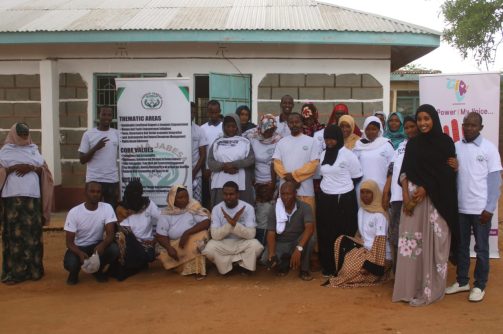
Rights based advocacy and community land
rights safeguarding
Rights-based advocacy and community land rights safeguarding in Northern Kenya are essential for empowering local communities and ensuring sustainable development. This thematic area focuses on advocating for the legal recognition and protection of community land rights, which are often threatened by external pressures such as large-scale land acquisitions and resource exploitation. Efforts include raising awareness among community members about their land rights, providing legal support and advocating for policy reforms that recognize and protect these rights.
Safeguarding community land rights also involves capacity-building
initiatives that empower communities to manage and defend their land resources effectively. This includes training on land management practices, conflict resolution and the use of legal frameworks to assert land claims. Additionally, fostering partnerships with NGOs, government agencies and international bodies helps to leverage resources and amplify advocacy efforts. Protecting community land rights not only preserves cultural heritage and biodiversity but also supports sustainable livelihoods and social stability.
Girl Child Education & Sexual
Reproductive and Health Rights
Promoting girl child education and sexual reproductive health rights in Northern Kenya is critical for empowering young women and fostering equitable development. Girl child education initiatives focus on increasing enrollment, retention and completion rates for girls in primary and secondary schools. Efforts will focus on providing scholarships, improving school infrastructure and addressing cultural barriers such as early marriage and gender-based violence that hinder girls' education. Community awareness campaigns emphasize the importance of educating girls for the overall socio-economic development of the region, while engaging parents and local leaders to support and advocate for girls' education and rights.
Sexual reproductive health rights (SRHR) are integral to ensuring that girls and young women have control over their bodies and futures. Programs in this area provides comprehensive sexuality education, access to reproductive health services and support for menstrual hygiene management. These initiatives aim to reduce rates of teenage pregnancies, sexually transmitted infections (STIs) and maternal mortality. In addition, integrating SRHR education within schools and community settings and ensuring that services are youth-friendly and accessible, Northern Kenya can create a supportive environment where girls and young women are
informed, healthy and empowered to make decisions about their reproductive health. This dual focus on education and health rights is essential for building a more inclusive and equitable society.
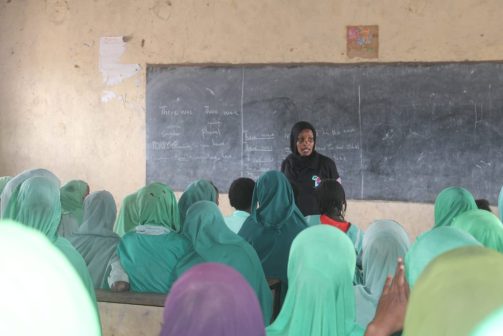
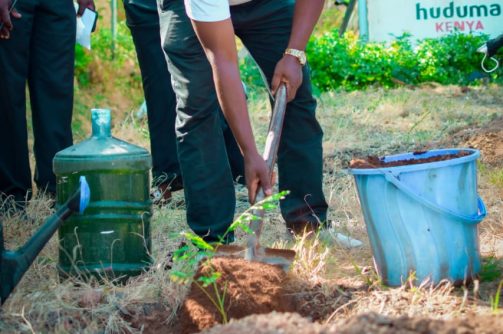
Climate Change Adaptation &
resilience
Climate change adaptation and resilience focus on mitigating the adverse effects of climate variability and building the capacity of local communities to withstand these changes. Northern Kenya faces severe challenges such as prolonged droughts, erratic rainfall and extreme weather events, which threaten traditional livelihoods like pastoralism. Adaptation strategies include the introduction of drought-resistant crops, sustainable livestock practices, and water conservation techniques such as rainwater harvesting and efficient irrigation systems. These efforts aim to ensure food security and maintain the livelihoods of the local pastoralist population amidst changing climatic conditions.
Building resilience involves empowering communities through education, training and the development of early warning systems to prepare for and respond to climate-related disasters. However, this will be enhanced through collaboration with government agencies, NGOs, Local traditional elders and research institutions essential to provide the necessary resources and knowledge for effective adaptation measures. Community-based initiatives that focus on reforestation, soil conservation and the protection of water catchment areas are also crucial.
ARDHA JABESA foundation is Non Governmental Organization (NGO) that was registered in the year 2021 under section 10 of the NGOs Coordination ACT, 1990. The organization has been operating as Charitable Nonprofit organization since 2017 and later gained NGO status in the year 2021.
